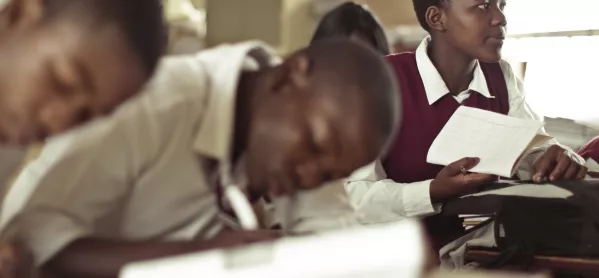Nearly 69 million new teachers will be needed worldwide, if every child is to receive a primary and secondary education by 2030, according to new figures released today.
The figures, published by the UNESCO Institute of Statistics to mark World Teachers’ Day today, show massive teacher shortages at both primary and secondary levels and adds that the target will be missed ‘unless radical’ action is taken.
The challenge is greatest in sub-Saharan Africa and southern Asia, the figures show. Together, they account for over 76 per cent (14.6 million) of the total teachers needed to achieve universal primary and secondary education.
It is the first time that estimates have been published showing the number of teachers that will need to be recruited to meet the target of providing education for all, agreed by members of the United Nations in 2015 as part of Sustainable Development Goal 4.
Today’s report by the UNESCO Institute of Statistics (UIS) shows:
- In total, by 2030, countries will have to recruit a total of 68.8 million teachers to provide every child with 12 years of education, including 24.4 million primary school teachers and 44.4 million secondary school teachers;
- across Sub-Saharan Africa, 90% of countries face an acute shortage of secondary school teachers and 70% of countries face an acute shortage of primary school teachers;
- Southern Asia, the region with the second-largest shortage of teachers, will need to recruit a total of 4.1 million primary and 10.9 million secondary teachers.
“Countries across the region are gearing up for the big push to achieve Sustainable Development Goal 4 by 2030,” Silvia Montoya, director of UNESCO’s Institute of Statistics, said. “But education systems are only as good as their teachers.
“Progress could depend on, first, whether there even is a teacher, or a classroom in which to teach. Second, on whether that teacher walks into the classroom with the training, resources and support they need to do their job. And third, on whether they are greeted by a manageable number of children instead of 60, 70 or even more pupils.”
The education charity The Varkey Foundation, which runs the $1m (£630,000) Global Teacher Prize, added that better pay would attract more talented individuals into the profession and get them to stay.
Vikas Pota, CEO of the foundation, said: “We already know that better pay will attract the best graduates into the profession and give them an incentive to stay.
“Given the stretched finances of developing world governments, the international community has a responsibility to help fund this - which is why it is such a disgrace that international education aid has been in decline since 2010.”
The report also found that beyond the sheer quantity of teachers, there is also a pressing need for teachers who are well-trained, well-qualified and properly paid.




